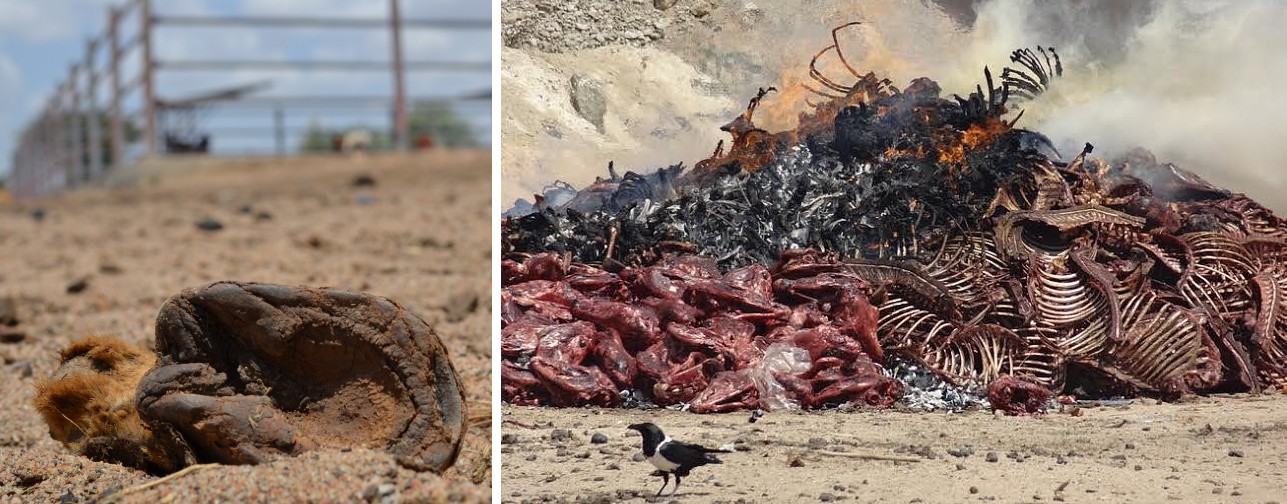DARE SALAAM – Tanzania is the latest country to help halt the trade in donkey skins for traditional Chinese medicine by announcing it will close down all of its donkey slaughterhouses from July 2017.
The decision by the country’s government department, the Ministry of Agriculture, Livestock and Fisheries, has been welcomed by The Donkey Sanctuary, the international charity currently campaigning for an immediate halt to the trading of donkey skins to produce the traditional Chinese product called ejiao.
Media reports have quoted Charles Tizeba, Tanzania’s Minister of Agriculture, Livestock, and Fisheries, as saying that the move is part of the government’s efforts to ‘save the animals from extinction,’ adding that in recent years the pace at which donkeys have been slaughtered is unsustainable.
The minister said that the government’s goal is to see a workforce of available donkeys that reaches and benefits 572,357 rural dwellers, especially women.
He advised people currently involved in donkey slaughter to ‘find other businesses to do or engage in the cattle or goat meat trade.’
Tanzania has been a key source country for donkey skins, which have fed the huge demand for ejiao.
As many as 1.8 million donkeys were either sourced legally or stolen and slaughtered for their skins worldwide last year, causing mass-scale suffering to donkeys and leaving donkey-reliant communities at risk of being impoverished and losing their independence.
The illegal trade has affected Tanzania badly, with reports of villages waking to find donkeys have been stolen, killed and stripped of their skins overnight.
These cases have led to The Donkey Sanctuary and its Tanzanian partners including TAWESO (Tanzania Animal Welfare Society), to work collaboratively with the Tanzanian government, and help influence the decision to close the slaughterhouses.
Alex Mayers, Head of Programmes at The Donkey Sanctuary says:
‘I’m delighted that the Tanzanian government is standing up for its donkeys and has recognised both the seriousness of the threat posed by this trade, and the social, cultural and economic value that donkeys have’.
Dr.Thomas W.Kahema, executive director at TAWESO says:
‘It is an honour to have worked with the team so closely and we are grateful to the Ministry for listening to us and taking the time to read the ‘Under the Skin’ report which reveals the shocking extent of the trade – our intensive work to raise awareness of the issues has worked!
“Now, we need to continue the battle against the black market trade, which remains a significant threat to our donkey populations.’
The announcement of slaughterhouse closures in Tanzania is a huge step towards stopping donkeys falling victim to the unsustainable trade – but the threat to animals and their owners remains while poachers continue to steal donkeys in the middle of the night, and slaughter them inhumanely. It is hoped that the closure of the abattoirs will lead to the ban of exporting donkey skins which will make the illegal trade more difficult.
The Donkey Sanctuary is working with partners across the world to monitor and lobby against the skin trade due to both its unsustainability and animal welfare implications.
About The Donkey Sanctuary:
The Donkey Sanctuary, founded in 1969 by Dr Elisabeth Svendsen, has grown to be a global driving force for the care of suffering donkeys and mules, and those communities whose lives they touch.
We have 10 sanctuaries around the UK and Europe, and currently operate in 27 countries from Mexico, Egypt and Ethiopia to Romania, China and India.
We aim to reach out to two million donkeys and mules each year in 40 countries, to double the number in foster care to 3,000, and to expand our donkey assisted therapy programme, which helps vulnerable children and adults around the UK and Europe.
You can read more about what The Donkey Sanctuary is doing to combat the trade alongside its partners worldwide here:
http://www.thedonkeysanctuary.org.uk/under-the-skin



